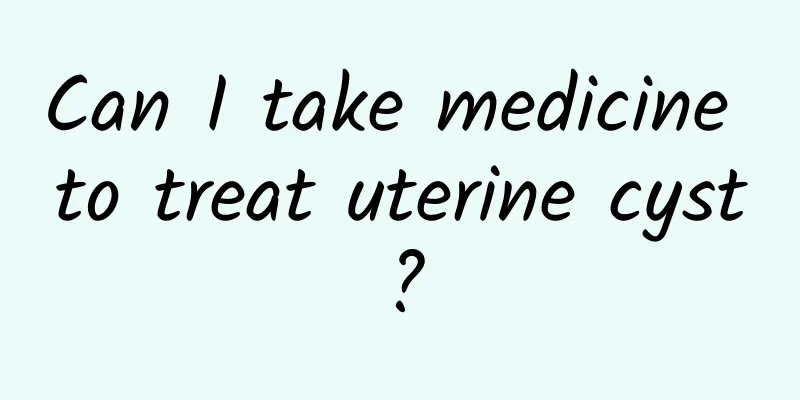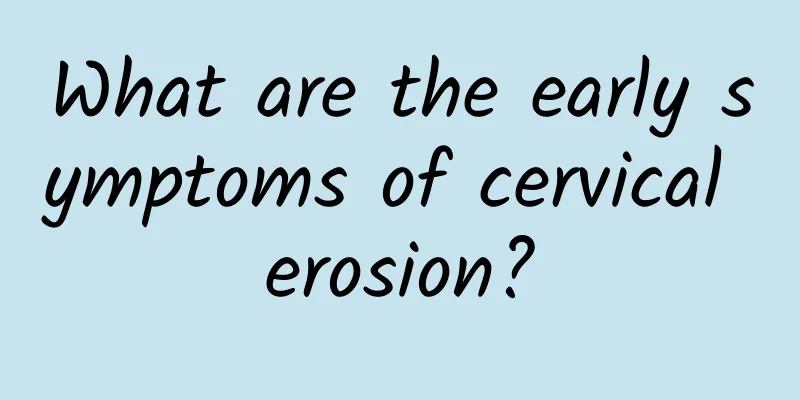Can I take medicine to treat uterine cyst?

|
Uterine cysts can be treated with medication to relieve symptoms, but the specific effect depends on the type of cyst and the condition, and surgical treatment is required if necessary. Drug treatment commonly uses hormone drugs such as medroxyprogesterone, dydrogesterone and norethindrone to help regulate hormone levels and shrink cysts; surgical treatment includes laparoscopic surgery, hysteroscopy and laparotomy, which are suitable for larger or more severe cysts. Patients should also pay attention to dietary conditioning, such as increasing fiber-rich foods and reducing high-fat foods; moderate exercise such as yoga and walking can help promote blood circulation. Uterine cysts are caused by a variety of factors, including imbalanced hormone levels, inflammatory responses, and genetic factors. Fluctuations in hormone levels may lead to ovarian dysfunction and cyst formation; inflammation such as chronic pelvic inflammatory disease may also induce cyst formation; women with a family history of uterine cysts are at higher risk. Drug treatment mainly controls cyst growth by regulating hormone levels. It is suitable for patients with mild symptoms or those who are unwilling to undergo surgery, but long-term use may bring side effects such as breast tenderness and menstrual disorders. Surgical treatment is suitable for cases where the cyst is large, the symptoms are obvious, or it is suspected to be malignant. It can completely remove the cyst and reduce the risk of recurrence. Patients should maintain good living habits during treatment, avoid overwork and mood swings, and have regular checkups to monitor changes in the cysts. Eating more foods rich in vitamins and minerals, such as fresh vegetables, fruits, and whole grains, can help improve immunity and promote recovery. For exercise, low-intensity aerobic exercise, such as swimming and jogging, can be chosen to enhance physical fitness, but strenuous exercise should be avoided to avoid aggravating symptoms. Through comprehensive treatment and lifestyle adjustments, patients with uterine cysts can effectively control the disease and improve their quality of life. The treatment of uterine cysts requires comprehensive management with medication, surgery and lifestyle adjustments. Patients should actively cooperate in choosing appropriate treatment plans based on their own conditions, while paying attention to daily care and regular check-ups to ensure treatment effectiveness and physical health. |
<<: How is surgery performed for ectopic pregnancy?
>>: What causes endometriosis and what medicine should I take for adenomyosis?
Recommend
Nursing care for pregnant women with threatened abortion
Care for pregnant women with threatened miscarria...
What medicine is good for cervical erosion? Choose according to the situation
Cervical erosion plugs can be treated with medica...
Can the uterus be preserved for multiple uterine fibroids? Are multiple uterine fibroids still benign tumors?
Can the uterus be preserved in patients with mult...
Will having an abortion affect fertility? Listen to the doctor
With the development of today's society, peop...
Does physical therapy for severe cervical erosion affect fertility?
Does physical therapy for severe cervical erosion...
Can I still get pregnant after ectopic pregnancy surgery?
Ectopic pregnancy brings great harm to women, not...
Vegan champion athletes share their experiences and the “power of veganism”: being a vegetarian can be healthy!
Many people have misconceptions about vegetariani...
What are the symptoms of uterine fibroids? Clinical manifestations of uterine fibroids
Symptoms: The symptoms of uterine fibroids and th...
Eliminate butterfly sleeves! Yoga crocodile pose and wood chopping movements are sharp enough
The fat butterfly sleeves are exposed as soon as ...
Is the probability of ectopic pregnancy high?
The probability of ectopic pregnancy is generally...
What are the symptoms and phenomena of cervical erosion
Cervical erosion is a medical term in the past. W...
Lose weight with yeast! Enzymes promote metabolism and help detoxification
Enzyme is an active protein that can be synthesiz...
Can pelvic inflammatory disease be cured by taking Chinese medicine?
Can pelvic inflammatory disease be cured by takin...
Will ovarian cysts cause abdominal pain in the early stages? Why?
Will ovarian cysts cause abdominal pain in the ea...
What are the types of pelvic peritonitis?
Acute pelvic peritonitis is mainly caused by path...









